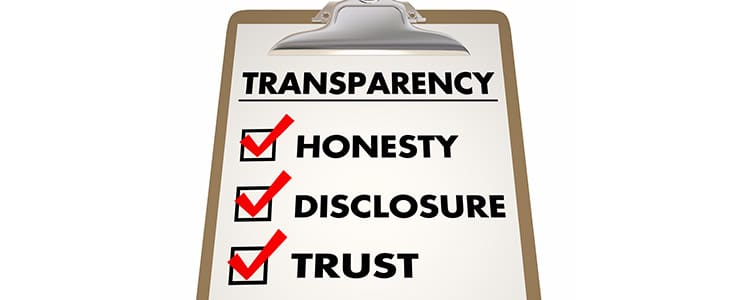Have you ever considered that sharks might be after your retirement money?
Do you ever feel like you’re bleeding in the water, and there are a bunch of sharks surrounding you? Many brokers are aggressive people. They will do almost anything to get your money; some even pretend to care about you. I have to say, I’ve met a few reputable brokers who genuinely care about their clients and look out for their client’s best interests. But they are few and far between. There is a reason they’ve made quite a few movies about the greed of Wall Street, and the harm brokers can cause people.
Films like The Boiler Room, The Wolf of Wall Street, The Big Short, and Wall Street shine the spotlight on the real character of a lot of brokers. I know a few former brokers, and they’ve admitted how driven by greed they are. It’s all about the car you drive, Rolex watches $10,000 high-end suits, $1,000 pairs of shoes, and the lavish living accommodations. If brokers focused on your portfolio as they do on their materialistic lifestyle, you would be doing much better.
The fact is, only a few brokers actively manage your accounts. They go into their Monday morning meetings, find out which stocks and mutual funds pay them the highest fees, and push them. Most accounts and trades are based on computer calculations and not one-on-one personal account management.
I’ll give you an example of this. I was at a client’s house, and she told me how great of a relationship she had with her broker. She had about $220,000 and bragged about how much she meant to her broker. I asked her if I could prove that her broker didn’t know her
that well and that her $220,000 was unimportant to him. We called her broker on speakerphone. She stated her name and said she wanted to liquidate her accounts to move them to another company. We heard silence on the line, and he said, “I thought you trusted me, and we had a great relationship.” She said she was tired of losing money and wanted to go through with it. He then said, “Who is this I am talking to?” She gave her name again, and we heard silence for a few seconds. He then said, “Oh my gosh! You gave me a heart attack. I thought you were someone else.” Even I was stunned at this comment. He admitted on the phone that she was not an important client and did not even know of her. She moved the money right away to our Safe Money accounts.
The other problem I have with brokers is that they are paid their fees year after year, no matter if they are losing your money or not. They say they don’t like annuities but hear me when I say this:
YOU ARE THEIR ANNUITY!
As long as you keep your money with them, they make their fees off of you year after year as long as you live. That is not how it’s supposed to be. You are supposed to have income guaranteed for your life, not them getting guaranteed income as long as you live.
I have a couple of examples to show how ridiculous it is that brokers make money even when you lose it. Imagine you are an electrical contractor, and you bid for a job. While doing your work, you make a mistake and burn down half of the building. Should you still get paid for your work? Another example: Imagine you are a truck driver. You are hauling a load from Denver to Dallas, and along the way, half of the load is dumped out on the road. As you can imagine, when you get to Dallas, you will not get paid, and you will probably never get hired again. Why is it that when brokers lose half of your money, they still receive their fees, and you keep them as your broker? To add insult to injury, when you lose half of your retirement, and you’re drowning, instead of throwing you a Safe Money life preserver, they throw you more fees, adding weight to your retirement and sinking you even faster. Another way they get your money is by using terms and statements like “portfolio rebalancing” and “I am diversifying your account by moving accounts around.” Every time they move your funds, they can receive a fee or commission. Besides, you only need to diversify if your money is at risk.
Brokers also say that risk is an “opportunity for growth.” If rebalancing and diversification were the keys to managing the risk in your accounts, we should all fly to Las Vegas and gamble in the casinos. You see, if you went to Las Vegas and played every slot machine or card table, rebalancing from one table to the next, diversifying your money across slot machines and card tables, you would be rich, right? We all know that is not true. There’s a reason why Las Vegas casinos bring in billions of dollars in revenue every year. Every slot machine and card table is designed to do one thing—take your money! Brokers and other people who sell risk accounts are very good at confusing you as well. They throw a 100–1000 page prospectus at you for each of your funds and expect you to understand it through and through. I have spoken with many clients that have had variable accounts who admit they never read the literature because it is so confusing and intimidating. That is no way to feel secure and safe about your retirement.
You get the feeling like they think it’s their money and not yours. The fact is, it’s your money, not theirs. If you ever try to move money out of your accounts to another company, you will find this out quickly. If you call the 800 number, they transfer you to your broker, and after you still decide to move your money, they have the Conservation Department call you to ensure you make the right decision. I went to the bank once to pull out a large sum of money, and before I knew it, I was called back to the bank president’s desk. When I sat down, he asked if I was sure I wanted to pull out that much money and that they could find a good place for me to invest it. I told him no thank you and said I still wanted to get my money out. I was then introduced to an investment advisor. At that point, I had to get stern, inform them that I was using the money to buy something and to give me my money. I was blown away. It’s my money, not the banks! Many people feel like this regarding the people who manage their money.
To prove all my above points, I want to ask you one question: Why didn’t they move your money when the market was dropping? This could have occurred for two reasons. One is they were not paying attention to your account. The other is they did not want to stop making their high fees and move you into the safety of a money market account or cash equivalent because most of the time, as soon as they move your money out of the risk accounts, brokers do not make as high of fees. Maybe it’s time to fire the brokers and money managers that risk your money.
On a side note, be careful about getting too close to the people who manage or help you with your money. If you end up feeling loyal to them or that they are your friend, it can cloud your decision to move your money when it’s time or when they lose your money. This is not about a personal relationship, it’s about what is best for your retirement and having an income you can never outlive.
QUESTIONS TO ASK YOURSELF:
Ø What has my broker done to help my retirement grow over the last ten or fifteen years?
Ø Are they right about getting me out of the market when it’s dropping and getting me into Safe Money?
Ø Do they continually move my money around to make more fees and commissions?
Ø Do they use phrases like “portfolio rebalancing,” “diversification,” or risk is an “opportunity for growth”?
Ø Are they fee-based only, and do I get paid even when I lose money?
This article is Chapter 3 of Chad Owen’s book Stress and Rocking Chairs. Get the complete book at https://www.stressandrockingchairs.com. Mention this article and, when you buy the book, we will send you the audiobook for free.



